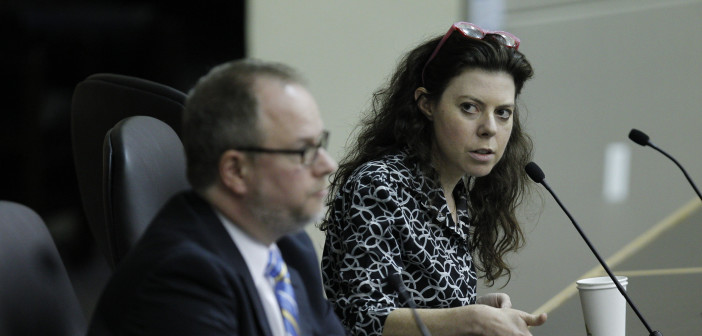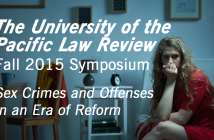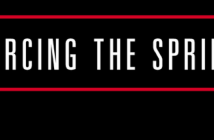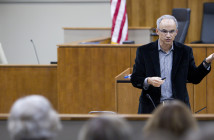Note: On Sept. 17, 2014, The Fair Political Practices Commission and the University of the Pacific, McGeorge School of Law Capital Center co-hosted a morning of spirited dialogue examining 40 years of political reform in California. The event featured prominent speakers discussing and debating the past, present, and future of the landmark 1974 initiative, the California Political Reform Act, that created the FPPC and made California a national leader in regulating campaign finance, conflicts of interest, and governmental ethics.
This article summarizes the panel “The Future of Political Reform.”
Among the topics discussed at the Sept. 17 symposium was the future of the Political Reform Act. Discussing the future of the Act was Jessica Levinson, a professor at the Loyola Law School of Los Angeles and Vice President of the Los Angeles Ethics Commission, and William R. Maurer, the managing attorney for the Washington office of the Institute for Justice. Professor Levinson and Maurer discussed the effectiveness of disclosure and the impact of the internet on political speech.
Couching its decisions in concerns for the preservation of free speech, the Supreme Court has found limits on aggregate contributions and expenditures unconstitutional, but has upheld disclosure requirements. In doing so, Professor Levinson noted, the Court left in place a disclosure regime that Congress never intended or designed to alone combat corruption or the appearance of corruption. However, Maurer explained that the Court’s trust in disclosure requirements may be misplaced. When controversy arises, as Californians experienced with Proposition 8 in 2008, disclosure may too threaten free speech by causing individuals to refrain from making political contributions for fear of having their name publicly linked to a controversial cause or candidate.
Maurer emphasized that creating a regime of “smart” disclosure laws((The concept of “smart” disclosure laws was a common theme throughout the symposium’s panels.)) was vital, as it could allow for small donors to make anonymous donations while potentially allowing the public to identify large contributors, thus furthering the goals of promoting both increased speech and transparency. Furthermore, the simplification or elimination of disclosure requirements could free would-be donors from complex contribution requirements, which Maurer noted rival IRS requirements. Professor Levinson also highlighted promoting the speech of small donors. She advocated using monetary limits to create more space for small donors to have their voices heard. While the speakers disagreed on how to ensure small donors could contribute to political debates, they agreed that protecting the voices of small donors was vital to future political reform regimes.
Both panelists identified the internet as a “game changer.” The internet provides small-moneyed parties an opportunity to spread their ideas and influence political dialogue through social media and websites, likely weakening the influence of traditional and expensive forms of political speech, including but not limited to, slate mailers and radio and television advertisements. As a result, in the future, the internet may weaken concerns about the connection between big money and government corruption.
Professor Levinson and Maurer disagreed on the importance of disclosure requirements to future political reforms, but they agreed that the often-publicized concepts of public financing of elections and a constitutional amendment to overrule the Supreme Court’s decision in Citizens United((Citizens United v. Fed. Election Comm’n, 558 U.S. 310, 130 S. Ct. 876, 175 L. Ed. 2d 753 (2010).)) were unlikely. Instead, both believed that the ever-growing impact of the internet on elections and the weakening of traditional and expensive forms of political speech could increase the ability of non-moneyed interests to influence politics. Regardless of one’s opinion of past political reform and Supreme Court decisions, the panelists’ beliefs that changes in technology will lead to greater ability to have the voices of non-moneyed interests heard should be comforting. However, for now, we must all continue to abide by disclosure requirements and the prevalence of highly funded interests in political campaigns.
Author’ s note: On behalf of the Pacific McGeorge School of Law, the Pacific McGeorge Capital Center, and the McGeorge Law Review, I sincerely thank Professor Jessica Levinson and William R. Maurer for their participation in this event. For additional information about Professor Levinson’s thoughts on the Political Reform Act, please see her article Expand Free Speech by Limiting Political Money published by the Sacramento Bee, available at http://www.sacbee.com/2014/09/21/6721114/jessica-a-levinson-expand-free.html#storylink=misearch.




